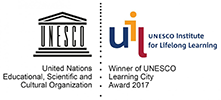BA in Art History, Classical Studies, Ethics, Film and Visual Studies, Philosophy (within Liberal Arts program)
Faculty of Humanities and Social Sciences
A degree in liberal arts provides ample career opportunities, graduates can be found in nearly all industries and professions thanks to the transferable skills this education ensures. At the University Pécs you may study Liberal Arts, a multidisciplinary program providing you with a wide choice of humanities-related majors. The flexible curriculum enables you to create a degree programme that suits your own interests.
Head of program: Dr. Adrienne Gálosi
- Description of the program
- Application procedure
- Application requirements
- Examples of subjects during the studies
- For more information, please contact
In the Western cultural tradition liberal arts education has always been the ultimate mark of an educated person, and still today it provides a comprehensive education in the humanities with the foundation knowledge to enter a number of careers in cultural life, education, and government, or to go straight into graduate study in any subject of humanities. The core aim of the curriculum is to develop well-rounded individuals with general knowledge of a wide range of subjects and with mastery of a range of transferable skills. It is designed to enable students to develop critical thinking and problem-solving skills, effective oral and written communication skills, and a sense of social responsibility. You will be taught in small, interactive seminar groups, encouraging discussion and debate with teaching staff and fellow students.
You will study a combination of required and optional modules, and choose a subject in which you will major, so no two Liberal Arts students have exactly the same programme. The programme offers you outstanding flexibility, balancing breadth of knowledge across disciplines with the opportunity for in-depth study in a field of your choice. The programme is structured with a system of major - a package of 80 study credits - and minor - 50 study credits to be chosen among the other liberal arts fields – and with required core courses.
Please note that a minimum of four students is required to choose each major and minor in the given year to start that programme.
Structure Overview
Art history
Art History courses combine a comprehensive review of art movements, artists, and artistic media with opportunities to put your knowledge into practice. The programme emphasizes art-historical theories and analytic methods with a strong focus on the visual arts of Europe and North America. It develops students’ critical skills and approaches to study and interpret works of art. These skills can be applied in many professions: education, public museums, commercial galleries, auction houses, interior design, fashion marketing, advertising, art journalism, art investigation, art and healing, law and property rights, art and computer software development.
Classical Studies
The programme offers an introduction to the era of classical antiquity, which is considered the essential education for a critically thinking individual knowledgeable in many fields and highly articulate. It provides a sound foundation for studies in European literatures and Western cultural history in general – literary genres, mythology, Greek and Roman religion, arts, philosophy and history of science. By acquiring basic language skills of Greek and Latin, students not only attain knowledge of fundamental issues of general linguistics, but are also provided help in getting acquainted with the Graeco-Latin international vocabulary used in other fields of humanities and social sciences. Typical positions with BA degree include museums and galleries, libraries and archives, tourism (foreign and domestic), cultural project management.
Ethics - Currently not available
With this programme you will gain knowledge of the history moral theories, and examine ethical debates in different fields of application. Courses mostly focus on the history of Western moral philosophy, and on the application of current philosophical thinking in contemporary settings. The knowledge and skills gained in this programme can be applied to a number of current issues. For example, encouraging ethical media practices, ethical principles in emerging technologies, developing policies that benefit the environment. Students will acquire the skills to provide analysis of moral problems and ethical debates and be able to make critical assessments of ethical arguments and policy documents, which are needed in a number of work settings including: education, health care, law, social justice, research and development.
Film and Visual Studies
The purpose of the module is to train professionals who are able to critically analyse and aesthetically evaluate films by giving the students substantial training in film analysis, history, and theory. Special attention is given to the study of Hungarian cinema, the forms and types of film narratives, the social context of cinema and popular culture, and the history and characteristics of experimental/avant-garde film.
Philosophy
The aim of the programme is to provide a thorough, broad and comprehensive historical and systematic education in philosophy. The programme will equip you with the ability to think logically, to evaluate arguments critically, and to challenge your own ideas and those of other people. You will learn about the central philosophical principles, concepts, problems, texts and figures of the Western tradition. Courses will provide you with the necessary knowledge of the history of philosophy and expound on the key philosophical themes and concepts. Seminars will teach you how to read and analyse texts closely, as well as offer well-structured presentations, and write philosophical papers. This degree will offer you a wide range of highly sought-after skills: analytical, evaluative, critical and creative thinking skills.
Popular career paths: graduate study, academia, widest range of cultural life such as museums, libraries, institutions of visual arts, film studios, media, journals, publishing houses, field of education, non-profit or government-related organizations.
Skype interview for applicants
The interview takes around 10-15 minutes. During this interview our colleagues are going to ask questions about your motivation and interests. The main goal of this discussion is to learn more about your language knowledge, personal skills and scientific interest – to be able to make the right decision to help our multicultural and open-minded community and academic integrity.
For a successful application please follow the steps below:
- To apply, click on the Apply Now button, and start your application.
- Register on our application site, fill the application form, upload the necessary documents and submit your application!
- After you have submitted your application, you are going to receive information on the further steps.
- If we received your application fee, we are going to start the evaluation of your application.
The applicant has to submit the following documents by uploading them to the online application portal of the University of Pécs:
- Certified and translated (if originals are not in English) copy of school transcripts and certificates showing satisfactory completion of senior high school.
- Europass CV in English
- Motivation letter (introduction plus field of interest, etc.) in 3000 to 3500 characters.
- Copy of valid passport or national ID
- Medical certificate, (please fill the document and attach the serologic test results)
- vaccination card (showing that you are immunized against HEP B)
- HEP A/B/C test*
- HIV test*
- Chest X-ray: Please attach the chest’s X-ray result (not the film!) in English/Hungarian! (not older than 3 months)
- Transfer receipt of the EUR 140 application fee
- Acceptable online language exams:
- Duolingo online exam from score 110
- IELTS Indicator from score 5.5
- Official copy of the following language exam certificates:
- TOEFL (iBT internet-based): 66 points (www.ets.org/toefl)
- IELTS: Overall Band Score: 5.5 (www.ielts.org)
- Cambridge ESOL: B2 level (www.cambridgeenglish.org)
- TELC: B2 level (https://www.telc.net/en.html)
- ECL: B2 level (http://www.ecl-test.com/)
- Entrance Exam (personally or via Skype)
*Please note: tests have to be taken within a year!
Program-related questions:
Dr. Adrienne Gálosi
Head of the program
Email: galosi.adrienne@pte.hu
Phone: +36 30 362 9584
Admission-related questions:
Ms. Vanda BŐCZIN-SIRKECI
international coordinator
Phone: + 36 72 501 600/64127; +36 30 186 1686
E-mail: foreign.humanities@pte.hu
English website of the Faculty
University of Pécs | Chancellery | IT Directorate | Portal group - 2020.









